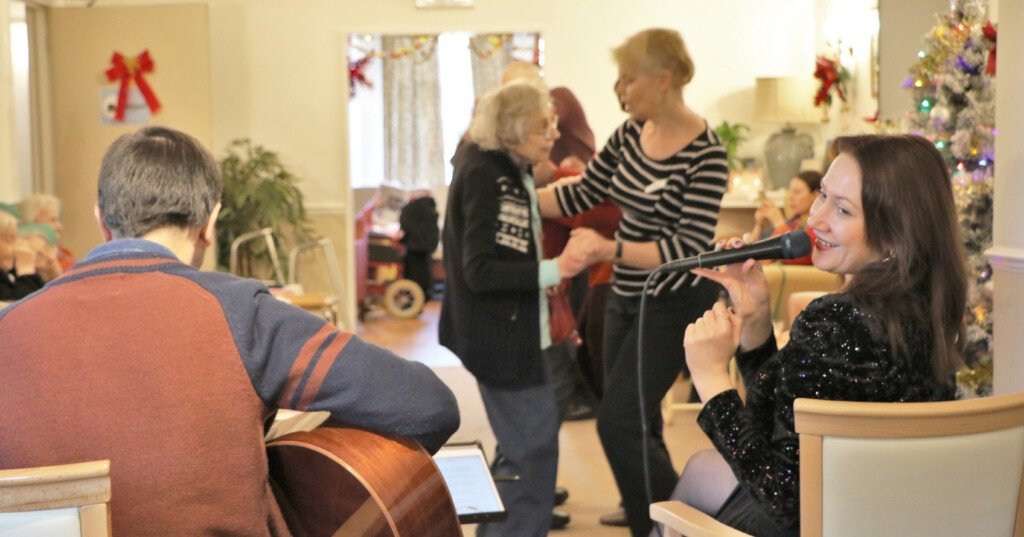In recent times, the therapeutic influence of music has proven invaluable, particularly for individuals grappling with brain diseases such as dementia. Music therapy, recognized as a transformative method, plays a crucial role in helping those living with dementia forge connections to their past and effectively manage behaviors.
One individual championing the healing power of music is Phoebe Gorry, a seasoned jazz singer who extends her performances into hospitals, care homes, and special needs schools. Collaborating with Music in Hospitals & Care (MiHC), a non-profit organization dedicated to delivering live concerts in healthcare settings, Gorry brings the profound impact of music to individuals unable to experience live performances.
Despite MiHC operating as a charity, its performances maintain a high standard of professionalism. Gorry, also serving as the Concerts Co-ordinator for the charity, emphasizes the importance of tailoring each MiHC concert to suit the unique preferences of the audience. Her versatility spans various genres, including jazz, dance hall, pop, funk, and Disney favorites, ensuring a personalized and uplifting experience for every listener.
Navigating diverse settings, from bustling hospital wings to neonatal wards or mental health facilities, presents a unique challenge. Gorry stresses the need to build rapport, read the room, and cater to the audience’s desires, making each performance a memorable and enjoyable experience.
**Unlock the transformative impact of music in healthcare settings with MiHC’s hospital privacy curtains.
Gorry recounts powerful reactions to her performances, from closed-eyed listening to tears and joyful sing-alongs. One particularly moving experience involved singing for a comatose ten-year-old girl, where the choice of an upbeat song led to the girl opening her eyes for the first time in weeks.
Professionally, Gorry acknowledges the personal and vocal growth spurred by MiHC concerts. These experiences have made her a more versatile performer, capable of adapting to various scenarios and singing on short notice. Most importantly, it has reinforced her passion for singing as a source of joy and comfort, especially for those facing challenging circumstances.
For aspiring MiHC singers, the organization conducts auditions twice a year. Gorry highlights the significance of good performance skills and interpersonal abilities, as engagement and communication are integral to the transformative impact of their musical outreach. Join the movement of harnessing the healing power of music in healthcare settings and making a positive difference in the lives of those who need it most.













